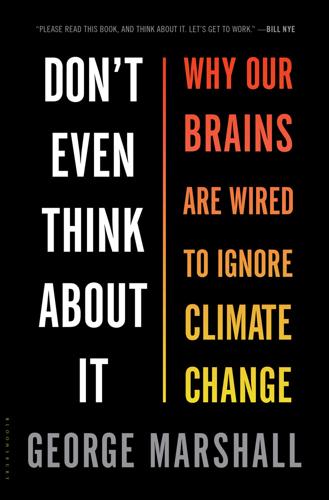
Don't Even Think About It: Why Our Brains Are Wired to Ignore Climate Change
by
George Marshall
Published 18 Aug 2014
The Canadian Broadcasting Corporation, forced to adjudicate, mandated the term “oil sands” in its reporting on the grounds that this is “more accurate because the substance refined from the extracted bitumen is oil.” One campaigner wryly commented that on this basis we should call tomatoes “ketchup.” The most effective and deliberate linguistic framing occurred in November 2009 when the server of the Climate Research Unit of the University of East Anglia was hacked into and fragments from a thousand e-mails were pieced together by climate deniers into a grand narrative of conspiracy, manipulation, and suppression of dissent. They dully dubbed it Climategate (the rival term Climaquiddick never took off), and within a week this new word had appeared more than nine million times across the Internet.
…
This was hardly a moment of great linguistic originality, following, as it did, the previous manufactured scandals of Nannygate, Nipplegate, Grannygate, Flakegate, Tunagate, Biscuitgate, and Pastagate. But it was a textbook example of how to use framing to dominate a discourse with your own values. Two months later, I attended a communications conference at which every participant used the term, even a senior professor from the Climate Research Unit itself. Climate deniers keep hoping to replicate that initial success with Himalayagate, Amazongate, Glaciergate, and Hurricanegate. The e-mail scandal shows the power of words and the frames they trigger. The main allegations revolved around a single phrase in the e-mails: “let’s use Mike’s trick to hide the decline.”
…
Not surprisingly, Morano thrives in the sound bite debate format beloved of live television and is promoted to the media by his employers, the Committee for a Constructive Tomorrow (CFACT), as a “credentialed counter guest” who will “offer a lively, fair and balanced discussion.” There is no question that he makes great debate television using his remarkable recall to gun down opponents with a blast of citations. Andrew Watson from the University of East Anglia Climate Research Unit was so wound up after a live television debate with Morano that he forgot that his microphone was still on and could be very clearly heard saying, “Christ, what an arsehole.” Morano loves this: “Sure,” he says, “Morano’s an A-HOLE!” Morano’s primary strategy is to play the enemy narrative and to discredit individual climate scientists.
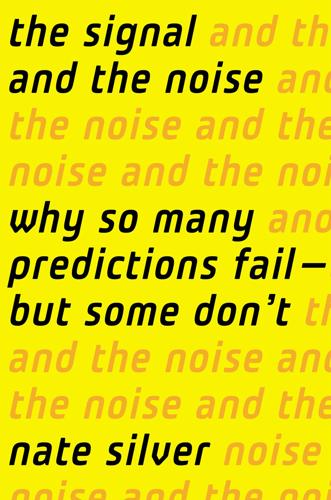
The Signal and the Noise: Why So Many Predictions Fail-But Some Don't
by
Nate Silver
Published 31 Aug 2012
In practice, the model underestimates the error slightly—and therefore somewhat underestimates the chance of a cooling decade—because the exact amount of CO2 is an unknown, as well as because of any specification uncertainty in the model. 103. “Climatic Research Unit E-Mail Controversy;” Wikipedia.org. http://en.wikipedia.org/wiki/Climatic_Research_Unit_email_controversy. 104. Henry Chu, “Panel Clears Researchers in ‘Climategate’ Controversy,” Los Angeles Times, April 15, 2010. http://articles.latimes.com/2010/apr/15/world/la-fg-climate-data15-2010apr15. 105. Including those from satellite records processed by private companies. 106.
…
Climate scientists have reacted to this challenge in a variety of ways, some involving themselves more in the political debate and others keeping it at arm’s length. Michael Mann, who is director of the Earth System Science Center at Penn State University, was once at the center of a controversy. “Climategate” concerned the hacking of a server at the Climatic Research Unit (CRU) at the University of East Anglia,103 which produces the temperature record that the UK’s Met Office uses. Skeptics alleged that Mann and other scientists had conspired to manipulate the CRU’s temperature record. The pertinent facts are that the scientists were cleared of wrongdoing by a panel of their peers,104 and that the CRU’s temperature record is quite consistent with the others105—but Mann and other scientists in the hacked e-mails demonstrated a clear concern with the public relations elements of how the science would be perceived.
…
This is potentially important because there has been more warming in the Arctic than in any other part of the globe. 64. Global Temperature Anomalies, National Atmospheric and Oceanic Association. ftp://ftp.ncdc.noaa.gov/pub/data/anomalies/annual.land_ocean.90S.90N.df_1901-2000mean.dat. 65. Climatic Research Unit, School of Environmental Sciences, University of East Anglia. http://www.cru.uea.ac.uk/cru/data/temperature/hadcrut3gl.txt. 66. Japan Meteorological Agency. http://www.data.kishou.go.jp/climate/cpdinfo/temp/list/an_wld.html. 67. Note that the two satellite records use some of the same underlying data. 68.
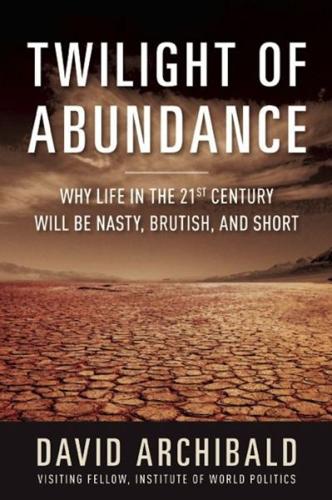
Twilight of Abundance: Why the 21st Century Will Be Nasty, Brutish, and Short
by
David Archibald
Published 24 Mar 2014
The notorious Climategate emails,1 released on November 20, 2009, appear to show scientists manipulating data to produce the answers they desired, bullying those who disagreed with them, plotting against scientific journal editors, and deliberately concocting misleading figures, among other apparent acts of willful malfeasance. As one of the scientists caught up in the scandal, Phil Jones of the UK-based Climatic Research Unit, observed, “I’ve obviously written some really awful emails.” Although the global warming panic of the last twenty years has been a wasteful distraction for humanity, it has, thankfully, served one good purpose. Because the field of climate science was so corrupted by the huge sums of taxpayer money outlaid, testing of the alarmist claims required involvement by scientists from outside the climate field.
…
J., 21 C California, 26, 73, 156 Canada, Canadian, 2, 68, 90, 149 wheat production, 2, 40 Canadian tar sands, 143–44 carbon dioxide attempts to limit emissions of, 115, 147, 151, 167, 170, 179 China and, 115 and CTL, 149 level in atmosphere, 4, 11–13, 35–36, 75, 165–69 level in seawater, 32 Carnage and Culture, 73 Carter administration, 146 Carter, Jimmy, 170 Caswell, Russ, 78–79 Central England Temperature record, 14–15, 21 cesium-137 (Cs137), 104–6 Charleston Harbor, SC, 37 Chernobyl, 103–6 Chien-Shiung Wu (character in “A Picture from a Possible Future”), 129 China, Chinese acts of aggression by, 90–92 cyberattacks on U.S., 110–11 economy of, 77–78, 120 energy development, 113–15, 118–19, 159–65, 184 global cooling and, 4, 35, 179 grain requirements, 60, 67–68, 179 humiliation of, 111–13 as “New Core Country,” 77–78, 121 nuclear power and, 94, 96 “A Picture from a Possible Future” and, 125–35 plans for aggression, 3, 52–53, 74, 78, 102, 107–23, 175, 187 population of, 58, 60, 64–65 Christianity, 81–83 Churchill, Winston, 82–83 CIA, the, 33–35, 48, 83 Civilization: The West and the Rest, 75 Clarke, E., 27–28 “Clash of Civilizations?, The,” 107 Clash of Civilizations and the Remaking of World Order, The, 107 Clilverd, M. A., 27 Climate Change Act of 2008 (UK), 6–7 Climategate, 12, 28–31 Climate Research, 29–30 Climatic Research Unit, the, 12 coal, 72, 154 China and, 114, 161–62, 164 UK and, 6, 184, 186 U.S. and, 143, 147–50 coal-to-liquids technology (CTL), 145–46 China and, 113–15, 164 Germany and, 146 as solution for U.S., 138, 145–52, 164, 172 Coal Question, The, 184 Cold War, the, 1, 85, 101 Communism, 4, 73, 85–86, 107 compressed natural gas (CNG), 145, 150–52 Concord, NH, 38 Constitution, the, 181 Coptic Christians, Copts, 51, 180 Core countries (“the Core”), 74, 77–81, 83, 121, 176, 180, 184 Corn Belt (U.S.), 2, 24–25, 39, 179 CSIRO, 28 Cultural Revolution, the (China), 112 D Dalton Minimum, 14–15, 18, 27–28 Dark Ages, the, 8–9, 47 “Darkness in July,” 40 De Bilt temperature record, 21 Decline of the West, The, x Delinquent Teenager Who Was Mistaken for the World’s Top Climate Expert, The, 28 DF-21D missiles, 94, 110, 126–27, 129, 134 Djibouti, 53 Dobu Island, 32 E Earth, the, 90, 166, 180 climate of, 5, 12–27, 33–34, 47, 80, 168–69, 177 as “Gaia,” 8 life on, 12, 165, 180 East Africa, 23, 51 East Anglia, 29 East Texas Oilfield, 3 Eddy, John A., 22, 37–38 Eddy Minimum, 22–23 Egypt, Egyptians collapse of, 48–51, 61, 63, 97, 178–80 food/grain and, x, 48–51, 63, 68, 95 weapons of, 92, 94, 96–97, 120 Einstein, Albert, 86 El Niño, 13–14, 177 Energy Information Administration (EIA), 114, 143–44 England, 25, 39–40.
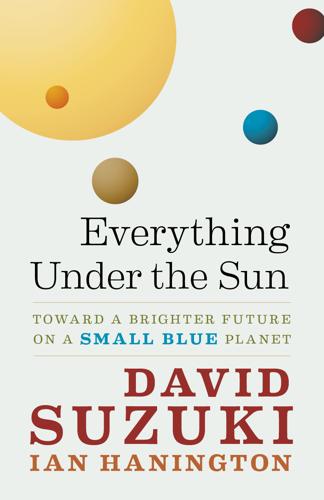
Everything Under the Sun: Toward a Brighter Future on a Small Blue Planet
by
Ian Hanington
Published 13 May 2012
Let’s take a look at some of what we are now learning. Six independent investigations have found that the unimaginatively named Climategate was anything but the scandal or “nail in the coffin of anthropogenic global warming” that deniers claimed. After the illegal theft and release of emails from scientists at the University of East Anglia Climatic Research Unit, some reports found that the scientists could have been more open about sharing data; however, their science was rigorous and sound. The University of East Anglia has since posted its research and data online, and all of the emails in question have also been posted. As for criticisms of the UN Intergovernmental Panel on Climate Change’s global assessment of climate change, a review found that despite “a very small number of near-trivial errors in about five hundred pages,” the report contained “no errors that would undermine the main conclusions.”
…
We need to listen to those who are trying to do something about our predicament rather than wishing it away. Where’s the climate conspiracy? PEOPLE WHO DENY the reality of human-caused global warming were wetting their pants over the hacked emails brouhaha at the University of East Anglia Climatic Research Unit. In their desperation, the deniers claimed the emails pointed to a global conspiracy by the world’s scientists and government leaders to... Well, it’s hard to say what they believed the conspiracy was about. A letter to a Vancouver newspaper on December 21, 2007, indicates the way many of them think.
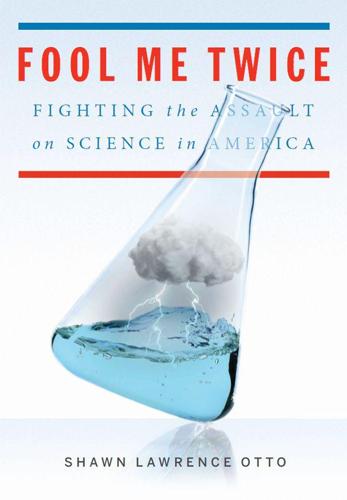
Fool Me Twice: Fighting the Assault on Science in America
by
Shawn Lawrence Otto
Published 10 Oct 2011
Anti-cap-and-trade opponents were gearing up for a “civil war” and the “greatest part of that battlefield is the global warming battle,” according to energy-industry-shill Lord Christopher Monckton, a British journalist with no particular expertise in climate science who travels America eruditely calling global warming “bullshit.”53 Obama’s delay gave opponents the time and ammunition they needed to regroup. CLIMATEGATE On November 17, 2009, the battle was rejoined. Days before the start of the Copenhagen climate summit, an unidentified hacker posted on a Russian FTP server a sixty-one-megabyte file containing e-mails stolen from servers at England’s University of East Anglia Climatic Research Unit (CRU). The hacker then posted a link to the file on the climate skeptic blogs The Air Vent54 and Watts Up with That?55 as well as the blog RealClimate, which is run by several leading climate scientists, including Michael Mann.56 The CRU is one of the world’s leading centers for climate research and a hub of global climate science communication.
…
Mike’s series got the annual land and marine values while the other two got April-Sept for NH land N of 20N. The latter two are real for 1999, while the estimate for 1999 for NH combined is +0.44C wrt 61-90. The Global estimate for 1999 with data through Oct is +0.35C cf. 0.57 for 1998. Thanks for the comments, Ray. Cheers Phil Prof. Phi l Jones Climatic Research Unit Telephone +44 (0) 1603 592090 School of Environmental Sciences Fax +44 (0) 1603 507784 University of East Anglia Norwich Email p.jones@xxxxxxxxx.xxx NR4 7TJ UK As in the polar bear case, a five-prong propaganda attack was employed: phony science; canned stories via bloggers for the press; AM talk radio and partisan cable news reaction and outrage; government intervention; and hand-wringing by the real actors, our much-maligned and patriotic heroes.
…
W., 15–16, 189 Bush, George W., 11, 15–17, 32–33, 155, 171–73, 189–91, 286 Bush, Vannevar, 74–75, 79, 85, 87, 110, 148, 150 Butylated hydroxytoluene, 139–40 C Cable news, 150, 208–9 Calvin’s Case (Coke), 40, 55 “Cap and tax,” 223–24 Cap and trade system, 200, 223–26, 268 Carbon dioxide (CO2), 187–89, 222, 230–31, 233 Carnegie, Andrew, 61, 309 Carson, Rachel, 96 Castaneda, Carlos, 114 Chapman, Matthew, 7, 54 Chargaff, Erwin, 78, 120 Charles I, 45–46 Chemberlin, Peg, 297–98, 300, 302, 304 China, 58, 220, 285–86 Christian Right, 110–12, 163 Church of England, 46 Churchland, Patricia, 118 Churnalism, 195, 203–5 Chu, Steven, 199–200 Cicerone, Ralph, 216, 229, 291 Civil rights movement, 120–21 Civil war of values, 111, 163–66, 171 Climate change anthropogenic, 227 bullying of scientists and, 214–16 Bush (George W.) and, 189–91 cable news and, 208–9 carbon dioxide and, 187–89, 222, 230–31, 233 churnalism and, 195, 203–5 conflict frame of, 180–82, 203–5 Congressional hearing on, 218–21 Cornwall Alliance and, 260–61 cost of addressing, 227 Democratic Party and, 290 denial of, 221–23 divide-and-conquer strategy and, 228–29 e-mail scandal and, 200–205, 210–12, 214–15, 291 economics and, 223–24 energy conservation and, 240–41 Europe and, 261–62 Fraud Against Taxpayers Act and, 217–18 glacial melting and, 192–95, 211–13 government allies and, 210–11 hockey stick graph and, 198–99, 201, 214 insurance cost of, 263–67 IPCC report and, 199, 212–13 Johnson and, 226–27 just world belief and, 282–84 Kyoto Protocol and, 189, 191 lobbyists and, 195, 198, 224–26, 239 media and, 194–95, 203–5 National Academies’ report on, 190–91 natural disasters and, 264–65 polar bears and, 192–97 politics of, 6–7, 189–91, 224–26, 236–40 propaganda strategy, five-prong, 195–98, 205, 211 Republican Party and, 290 science of, 187–89, 220, 301 scientists’ letter to Congress and, 206–8 solutions, 228–29 South Dakota’s resolution and, 216–17 sulfur aerosol injection, 228–29, 232–36 SuperFreakonomics and, 229–32 suppression of knowledge and, 220–21 talk radio and, 205–6 U.S. presidents and, 226–27 Climate Change Act (Great Britain), 261 Climate change bill, 214, 223 “Climategate,” 200–205, 210–12, 291 Climate Research Unit (CRU), 200–205, 210–12, 214–15 Clinton, Hillary, 8 CO2, 187–89, 222, 230–31, 233 Cobern, William, 125 Cogley, Graham, 211 Coke, Edward, 40–41, 44, 46, 48, 51, 55 Cold war rivalry, 79–85, 93–95, 237 Collectivism, 249–50, 299–300 “Command and control” method, 266 Commoditization, 312–13 Communication, 183 Communism, 83.
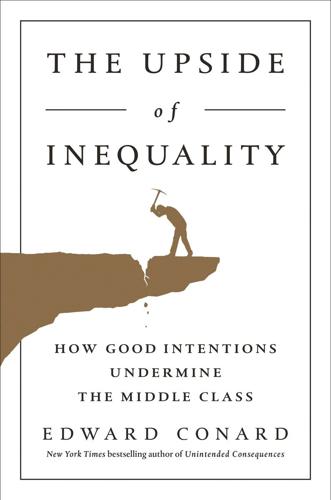
The Upside of Inequality
by
Edward Conard
Published 1 Sep 2016
But the very thing scientific experiments endeavor to overcome—selection bias—fiercely drives real-world outcomes. If I sound too cynical, consider another research area in which natural results are seldom repeatable and where the conclusions are politically charged—climate change. In 2009 hackers revealed e-mails from the Climatic Research Unit (CRU) at the University of East Anglia that raised questions about the institution’s objectivity. The British government called upon the independent Science Assessment Panel to investigate these claims. While the panel absolved the university, it found it “very surprising that research in an area that depends so heavily on statistical methods has not been carried out in close collaboration with professional statisticians.”17 These findings are hardly reassuring of wholly unbiased research.
…
Joshua Angrist, Parag Pathak, and Christopher Walters, “Explaining Charter School Effectiveness,” Institute for the Study of Labor, April 2012, http://ftp.iza.org/dp6525.pdf. 17. Ron Oxburgh et al., “Report of the International Panel Set up by the University of East Anglia to Examine the Research of the Climatic Research Unit,” University of East Anglia, April 14, 2010, http://www.uea.ac.uk/documents/3154295/7847337/SAP.pdf/a6f591fc-fc6e-4a70-9648-8b943d84782b. 18. Joshua Angrist, Susan Dynarski, Thomas Kane, Parag Pathak, and Christopher Walters, “Who Benefits from KIPP?” IZA Discussion Paper No. 5690 (May 2011), http://economics.mit.edu/files/6965. 19.
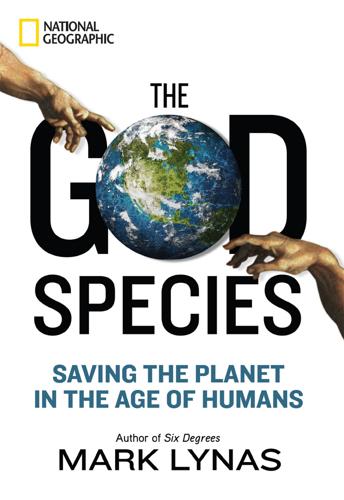
The God Species: Saving the Planet in the Age of Humans
by
Mark Lynas
Published 3 Oct 2011
Indeed, climate denialists became so successful in 2009 that they managed to dominate the media agenda via a series of manufactured scandals that engulfed much of the climate-science community. Deniers promoting the so-called “Climategate” affair took a few out-of-context quotes and superficially embarrassing private slips by leading scientists from some leaked emails and nearly managed to publicly discredit not only the Climatic Research Unit of the University of East Anglia but several other leading institutes too. Vociferous promoters of a subsequent scandal took a single mistake about Himalayan glaciers, buried deep in the second weighty tome of the IPCC’s 2007 Fourth Assessment Report, and used it to attack the entire IPCC process, and the role of Chair Rajendra Pachauri in particular.
…
cadmium calcium carbonate Calcutta Cambrian explosion Canada Cancún, UN climate change meeting, 2010 “cap and trade” programs carbon: cycle; offsetting/markets capture and storage (CCS); price; politics of; black carbon dioxide emissions: planetary boundary for Carbon Trade Watch cars see vehicles Cartagena Dialogue Cato Institute CFCs Cheatneutral.com Chernobyl Chesser, Robert China 21 coal power in; nuclear power in; dam construction; “night soil” industry; meat eating in; demand for fossil fuels; alternatives to high carbon aviation; hydroelectricity; virtual water and; pollution incidents; aerosol pollution; black carbon and; transport pollution; emissions standards; CFC production; Copenhagen summit and; population growth; vehicle ownership, growth in emissions; food production; investment in low-carbon technologies Chinese Academy for Environmental Planning Climate Action Network Climate Action Partnership climate change: carbon offsetting/markets and; deniers; extinction and; boundary see climate change boundary; tipping points; methane and; agreements/negotiations; nitrates worsen; solar radiation management and; see also carbon dioxide emissions, China, individual agreement/negotiation name, nuclear power, population, renewables under individual event and area name climate change boundary; 350: current evidence; 350: modeling evidence; 350: past evidence; toward a technofix?; technologies for new technologies for the future; politics of carbon; sea level rise; Arctic thaw and; destabilization of Atlantic Ocean circulation; models Climate Fix, The (Pielke Jnr) “Climategate”, 2009 Climatic Research Unit, University of East Anglia Clinton, Bill Club of Rome coal power Cochabamba, Bolivia Collapse (Diamond) Colorado River Commission for the Conservation of Atlantic Tunas Condit Dam Congo Basin Forest Fund Congress, US Convention on Biological Diversity, Nagoya, 2010 Convention on Long-range Transboundary Air Pollution, 1979 COP15 of the UN Framework Convention on Climate Change Copenhagen Accord Copenhagen climate summit, 2009 coral reefs Corporate Watch Costa Rica Costanza, Robert Cretaceous Period Crookes, William Crutzen, Paul Current Opinion in Plant Biology Cyclone Nargis Da Silva, Luiz Inácio Lula Dai, Aiguo Daly, Herman Dampier, William dams, removing unnecessary; hydroelectric; Chinese construction of; fishery collapse and; tidal barrages; block natural flow of water; threaten species; affects water temperature; water trapped behind loses most of its sediment load; current water use; where water is taken from Danish Committee on Scientific Dishonesty DDT Dead Sea dead zones deep-sea floating turbines deforestation Delta smelt “demographic transition” Dhaka Diamond, Jared diesel engines Dinorwig, Wales DuPont Earth: goldilocks state; self-regulating; “snowball”; ice-albedo feedback; see also carbon: cycle “earthshine” East Antarctic Ice Sheet Economics of Ecosystems & Biodiversity, The (TEEB) report, 2010 Economist Ecuador Edwards Dam Egypt electric vehicles Endangered Species Act, U.S.
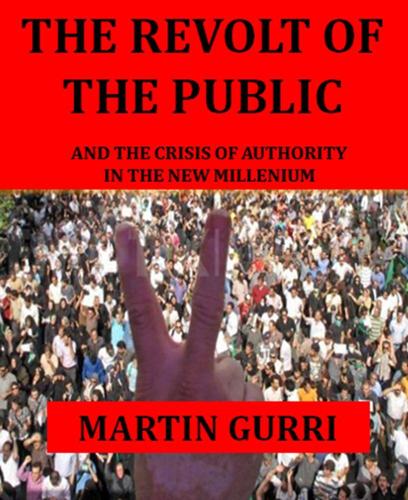
The Revolt of the Public and the Crisis of Authority in the New Millennium
by
Martin Gurri
Published 13 Nov 2018
For the purpose of this chapter, it should be enough for me to touch, however lightly, on two revealing incidents. The first began with a familiar ritual: the public, in control of the information sphere, maneuvered in a fashion utterly surprising to authority. On November 19, 2009, someone who had hacked thousands of emails from the Climatic Research Unit (CRU) of the University of East Anglia, Britain, released them to the public on an obscure Russian server. The names on the emails belonged to the most eminent climatologists involved in global warming research, and included many of the leading contributors to the United Nations’ Intergovernmental Panel on Climate Change (IPCC).
…
I grant that this, too, is hard to prove: there are no measurements of public trust in science before and after Climategate that I am aware of. There is no data going back to 1919. Existing surveys show a significant decline in trust,[108] yet I suspect they understate the case: many people, when asked about science, still think of Einstein rather than the Climatic Research Unit of the University of East Anglia. They fondly recall the solitary seeker after truth and fail to see the master bureaucrat. Only when focused on specific issues does the public admit, even to itself, the full measure of its distrust. People on the left believe that science is a tool of Big Business, that scientists are willing to poison us with genetically modified food and torture laboratory animals to earn a bigger profit for their paymasters.
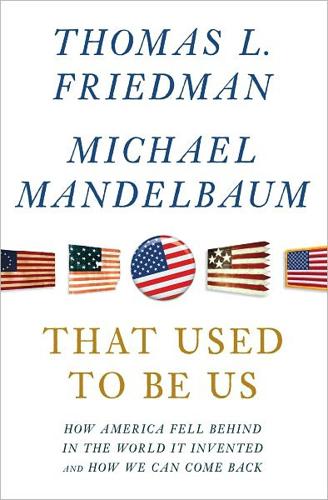
That Used to Be Us
by
Thomas L. Friedman
and
Michael Mandelbaum
Published 1 Sep 2011
But they could also turn out to be worse—much worse. You would not know that, though, from reading the newspapers in 2010. Climate skeptics, many funded by the fossil-fuel industries, seized on a few leaked e-mails among climate scientists working with Great Britain’s University of East Anglia’s Climatic Research Unit to gin up a controversy about the conduct of some of its scientific investigators. Whatever one thinks of this specific case, it hardly invalidates the scientific consensus on global warming based on independent research conducted all over the world, nor do a few minor mistakes in the UN’s massive Intergovernmental Panel on Climate Change report.
…
(Fiorina) Cummings, Elijah Cuttino, Phyllis CVS pharmacies Czechoslovakia D Darwin, Charles Das, Paul Masih Dawn (newspaper) Dean, Howard DeBenedictis, Erika Alden Declaration of Independence Deere, John Defense Advanced Research Projects Agency deficits: education; trade; see also budget deficits Degrees of Separation (Brooking Institution) Delaware DeLay, Tom Dell, Michael Delta Airlines Democracy (Adams) Democracy in America (Tocqueville) Democratic Party; campaign contributions to; economic and fiscal policies of; energy and climate policies of; entitlement programs and; Leadership Council; news media and; origins of; polarization of Republican Party and Democratic-Republicans Dempsey, General Martin Denmark deregulation Detroit; Regional Workforce Fund Dietrich, Marlene Dillon, Sam Dimon, Jamie Disneyland Dixiecrats DNA Dodd, Chris Dodd-Frank Wall Street Reform and Consumer Protection Act (2010) Doerr, John Dole, Bob Domenici, Pete Douglas, Michael Dow Jones Industrial Average Drudge Report Druid City Arts Festival Duke University Duncan, Arne DuPont Corporation E Earth Policy Institute East Anglia, University of, Climate Research Unit Eastman Machine Company Eat People (Kessler) Economist, The Edison, Thomas education; in Army; attainment levels; businesses and; in California; in China; during Cold War; Colorado as model for reform of; community role in; cuts in spending for; higher (see also specific colleges and universities); history of government support for; improvement in quality of; income inequality and; innovation and; IT revolution and; neighbors and; parents’ role in; religious, of Muslims; responsibility of students for; in Singapore; Teach for America as model program for; teachers and principals and; Tea Party and; underperformance of; workforce and Education, U.S.
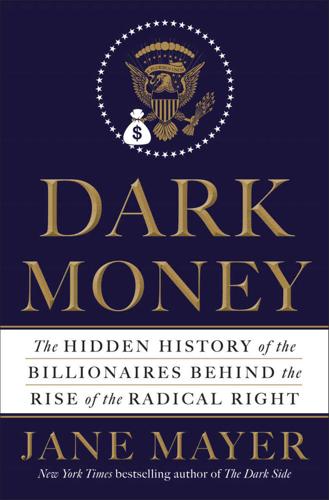
Dark Money: The Hidden History of the Billionaires Behind the Rise of the Radical Right
by
Jane Mayer
Published 19 Jan 2016
Then, on November 17, 2009, an anonymous commenter on a contrarian Web site declared, “A miracle has happened.” With lethal timing, an unidentified saboteur had hacked expertly into the University of East Anglia’s Web site and uploaded thousands of internal e-mails detailing the private communications of the scientists working in its famed Climatic Research Unit. The climatologists at the British university had been in constant communication with those in America, and now all of their unguarded professional doubts, along with their unguarded and sometimes contemptuous asides about their opponents, stretching all the way back to 1996, were visible for the entire world to read.
…
There was a very skillful campaign to indoctrinate them,” he said. “We’ve seen Second Amendment enthusiasts take action against abortion doctors. There’s an attempt to paint us as villains in the same way.” He was not alone in receiving death threats. Several climatologists, he said, including Phil Jones, director of the hacked Climatic Research Unit in Great Britain, felt compelled to hire personal bodyguards. “Luckily,” Mann relates, both the Penn State investigations—which the legislature required to be done a second time in greater depth—and another one by the inspector general of the National Science Foundation, essentially the highest scientific body in the United States, exonerated Mann.
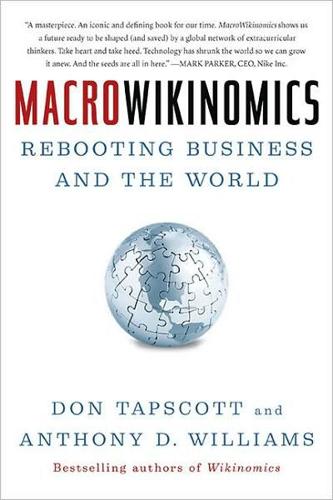
MacroWikinomics: Rebooting Business and the World
by
Don Tapscott
and
Anthony D. Williams
Published 28 Sep 2010
As the intermingling of science and public policy intensifies in an era of new global risks, questions about how scientists relate to the public and how the public relates to science are becoming critical. Nothing illustrates the challenges better than the recent “climategate” scandal in which a large stash of e-mails from and to investigators at the Climatic Research Unit of the University of East Anglia provided more than enough evidence for concern about the way some climate science is done. The science discussed in the e-mails is mostly from one small area of climate research—the taking of raw temperature data from thermometers, satellites, and proxy measures of historical climate such as tree rings and turning it into usable information on temperature trends.
…
In turn, they accuse their attackers of conflating McIntyre’s legitimate technical criticism of their methods with “unsupported, unjustified and unverified accusations of scientific mal-conduct that confused the public.” They were partially vindicated when the U.S. House of Representatives’ Science and Technology Committee concluded in March 2010 that there was, in fact, no evidence to support charges that the University of East Anglia’s Climatic Research Unit or its director, Phil Jones, had tampered with data or perverted the peer review process to exaggerate the threat of global warming. Moreover, the committee noted that nothing in the more than one thousand stolen e-mails challenged the scientific consensus that “global warming is happening and that it is induced by human activity.”
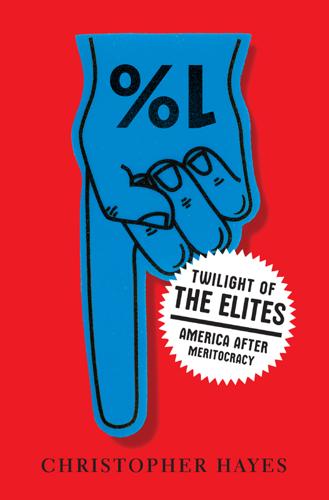
Twilight of the Elites: America After Meritocracy
by
Chris Hayes
Published 11 Jun 2012
A publication could devote itself entirely to reporting truthfully on, say, the allegations and charges of sexual assault against Assange, and yet it’s hard to imagine Assange would simply tip his cap to them for being “truthful.” If WikiLeaks’ exposure of the American security state shows the possibilities of Assange’s vision, its decision to post a massive trove of e-mails and documents from climate scientists at the University of East Anglia’s Climate Research Unit shows its limitation. The ten years’ worth of private e-mail correspondence between climate scientists within UEA and elsewhere revealed a group of academics who viewed themselves as under siege from well-funded and disingenuous critics, not to mention a group contemptuous and defensive toward their outside skeptics—not necessarily a flattering picture.
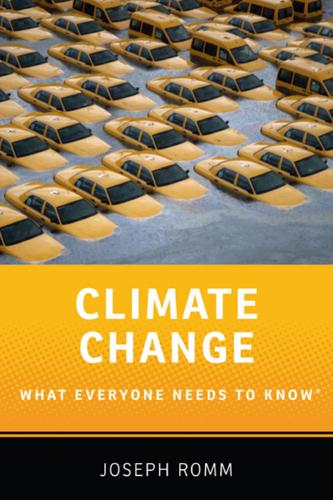
Climate Change
by
Joseph Romm
Published 3 Dec 2015
“The UK’s Hadley Centre record simply excludes this area, whereas the NASA version assumes its surface temperature is the same as that of the nearest land-based stations.” That is one reason we know with high certainty that the planet has actually warmed up more in the past decade than reported by some of the global temperature records, especially the Met Office, which uses “HadCRUT” data developed by the Hadley Center with the Climate Research Unit ([CRU] Norwich, UK). In December 2013, researchers showed that these “missing” data had caused a large part of the supposed slowdown in the Met office data.10 German Climatologist Stefan Rahmstorf summarized the findings this way: A new study by British and Canadian researchers shows that the global temperature rise of the past 15 years has been greatly underestimated.
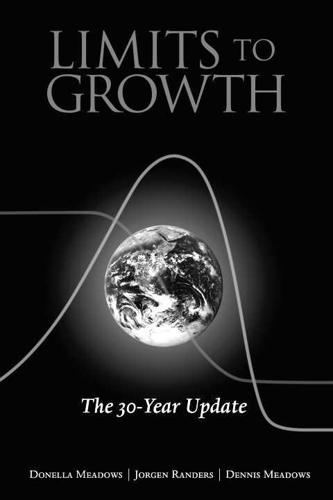
The Limits to Growth: The 30-Year Update
by
Donella H. Meadows
,
Jørgen Randers
and
Dennis L. Meadows
Published 15 Apr 2004
Watson et al., Climate Change 2001: Synthesis Report, Intergovernmental Panel on Climate Change (Geneva, Switzerland: IPCC, 2001). Also available along with numerous illustrations atwwwipcc.ch. 92. For a colorful presentation of the skeptic's view on climate and all other environmental issues, see Lomborg, Environmentalist. 93. See the vastly informative Web site of the Climatic Research Unit at the University of East Anglia, Norwich, UK, www.cru.uea.ac.uk. 94. See, for example, "Global Warming. Stormy Weather," Time, November 13, 2000, 35-40, with regional weather forecasts for Europe to 2050. 95. Watson et al., Climate Change 2001. 96. These data come from ice cores drilled deep into the Antarctic ice sheet.
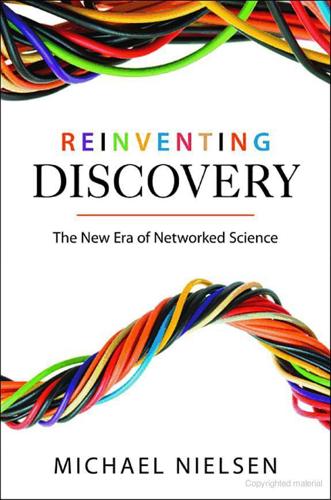
Reinventing Discovery: The New Era of Networked Science
by
Michael Nielsen
Published 2 Oct 2011
In an open-but-filtered world there is no problem with people such as Grothendieck pursuing their own solitary program. Won’t open science sometimes be used for ends that many scientists find distasteful? In November of 2009, hackers broke into a computer system in one of the world’s leading centers for climate research, the Climate Research Unit at the University of East Anglia, in the UK. The hackers downloaded more than 1,000 email messages sent between climate scientists. They then leaked the emails (and many other documents) to bloggers and journalists. The incident received worldwide media attention, as many climate change skeptics seized upon the emails, claiming that they contained evidence to prove that the notion of human-caused climate change was a conspiracy among climate scientists.
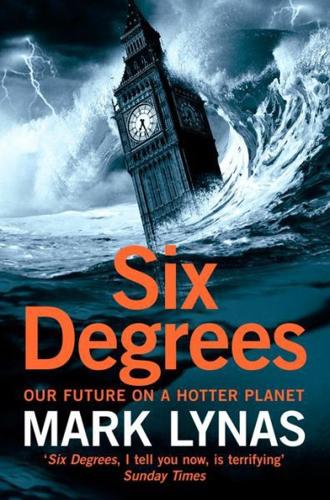
Six Degrees: Our Future on a Hotter Planet
by
Mark Lynas
Published 1 Apr 2008
(ed.), Avoiding Dangerous Climate Change, Cambridge University Press p. 173 India: 2005: Climate Change Scenarios for India, Keysheet 2, Defra p. 173 global analysis: Wang, G., 2005: ‘Agricultural drought in a future climate: results from 15 global climate models participating in the IPCC 4th assessment’, Climate Dynamics, 29, 739-53 p. 174 China… civilisations: Chang Huang, C, et al., 2003: ‘Climatic aridity and the relocations of the Zhou culture in the southern Loess Plateau of China’, Climatic Change, 61, 361-78 p. 174 Harappan civilisation: Staubwasser, M., et al., 2003: ‘Climate change at the 4.2 ka BP termination of the Indus valley civilization and the Holocene south Asian monsoon variability’, Geophysical Research Letters, 30, 8, 1425 p. 177 rainfall declines: Raisanen, J., et al., 2004: ‘European climate in the late twenty-first century: regional simulations with two driving global models and two forcing scenarios’, Climate Dynamics, 22,13-31 p. 177 heatwaves: Holt, T., and Palutikof, J., 2004: The Effect of Global Warming on Heat Waves and Cold Spells in the Mediterranean, Prudence Deliverable D5A4, Climatic Research Unit p. 177 200 to 500 per cent increase: Diffenbaugh, N., et al., 2007: ‘Heat stress intensification in the Mediterranean climate change hotspot’, Geophysical Research Letters, 34, L11706 p. 177 Switzerland: Beniston, M., and Diaz, H., 2004: ‘The 2003 heat wave as an example of summers in a greenhouse climate?
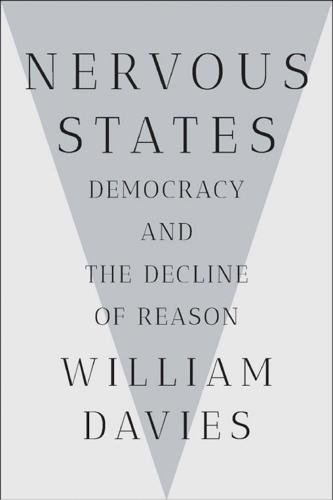
Nervous States: Democracy and the Decline of Reason
by
William Davies
Published 26 Feb 2019
Social media archives and email leaks allow the world to view and criticize their behavior, whether or not it is obviously relevant to their public status and credibility. The email hacking scandal known as “Climategate” saw thousands of emails being leaked from the University of East Anglia Climate Research Unit in 2009–11, aimed at undermining both the authority of climate science but also the neutrality and objectivity of climate scientists themselves. This form of trolling follows the logic of encryption and interception, and harnesses them as weapons of cultural war. The enemy is rendered as transparent as possible, while the perpetrator remains opaque.
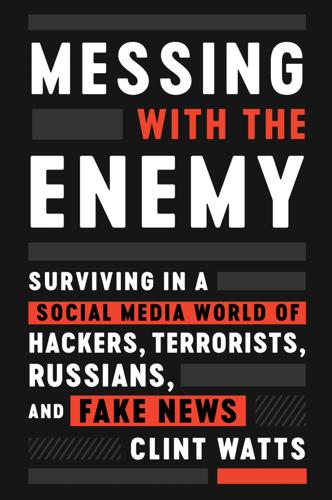
Messing With the Enemy: Surviving in a Social Media World of Hackers, Terrorists, Russians, and Fake News
by
Clint Watts
Published 28 May 2018
Until the U.S. presidential election of 2016, surprisingly few questioned the validity of Assange’s attacks on the West and particularly on the United States. Most overlooked a curious bit of WikiLeaks history, the first glimpse of which occurred on November 17, 2009. WikiLeaks posted email messages between climate scientists at the University of East Anglia’s Climatic Research Unit (CRU). The emails in the raw were used by climate change skeptics to show global warming to be a conspiracy. The CRU claimed that the emails were nothing more than healthy dialogue between researchers. Some investigating the CRU’s breach thought the leaks may have come from Russia, noting signatures that could have been tracked back to “a small web server in the formerly closed city of Tomsk in Siberia.”5 The source of the hacks remains an unsolved puzzle but the suggestion of a connection between Russia and WikiLeaks, curiously, would surface again less than a year later.
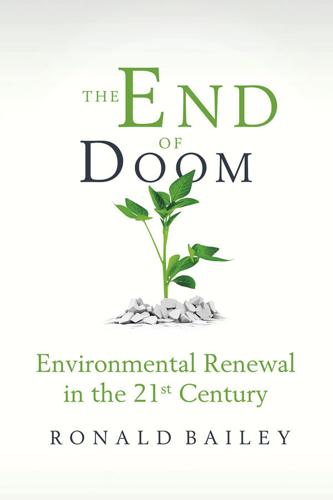
The End of Doom: Environmental Renewal in the Twenty-First Century
by
Ronald Bailey
Published 20 Jul 2015
For example, in January 2015 the US National Oceanic and Atmospheric Administration (NOAA) reported that there is 38 percent chance that 2014 was warmer than 2010 or 2005, the next two warmest years in the NOAA records. The independent climate research group Berkeley Earth also concluded that 2014 was nominally the warmest since the global instrumental record began in 1850 while noting, however, that within the margin of error, it is tied with 2005 and 2010. The UK Met Office and the Climatic Research Unit at University of East Anglia ranked 2014 as tied with 2010 for the warmest year in the record, but added that the uncertainty ranges mean it’s not possible to definitively say which of several recent years was the warmest. Climatologists at the University of Alabama in Huntsville have been tracking global temperatures for the past thirty-six years using satellite data that measure the bottom five miles of the atmosphere.
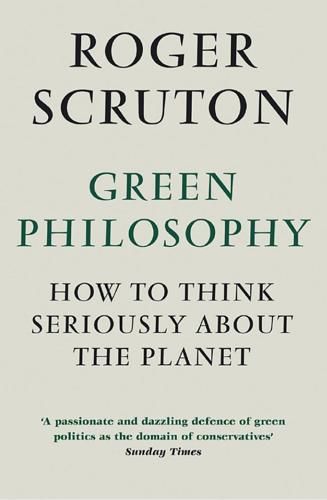
Green Philosophy: How to Think Seriously About the Planet
by
Roger Scruton
Published 30 Apr 2014
But the IPCC has critics too, who were not reassured by the fact that the organization shared the 2007 Nobel Peace Prize with Al Gore. The website climatedepot.com, managed by Marc Morano and devoted to identifying, retailing and amplifying the arguments of the sceptics, has done its best to discredit the IPCC. It has recently published pirated internal documents suggesting that scientists at the Climate Research Unit at the University of East Anglia, on which the Panel relies for its global temperature measurements, have been prepared to falsify evidence for political ends.55 Since then the chairman of the IPCC, Indian climatologist Rajendra Pachauri, has been heavily criticized for (among other things) issuing wildly inaccurate data concerning the melting of the Himalayan glaciers.56 Even before those episodes, the favourable opinion of the IPCC’s reports was not shared by all climatologists: certainly not by the 800 sceptics listed on climatedepot.com, or the prominent ‘deniers’ collected by Lawrence Solomon.
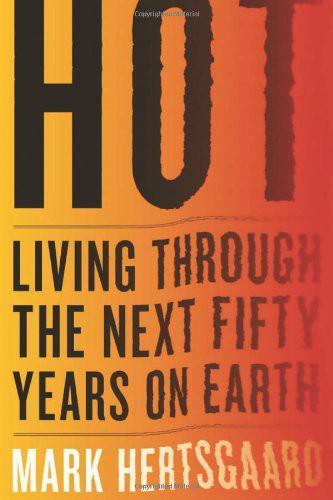
Hot: Living Through the Next Fifty Years on Earth
by
Mark Hertsgaard
Published 15 Jan 2011
As the Copenhagen climate summit began in December 2009, almost every major news organization in the world gave front-page coverage to the deniers' unfounded accusations of widespread fraud on the part of leading climate scientists. Quoting people out of context and cherry-picking data, the deniers accused scientists at the Climate Research Unit of the University of East Anglia in Britain of falsifying results and then lying about it, and of conspiring to suppress dissenting views. The only news organization that took the time to investigate rather than merely echo these charges was the Associated Press. A team of AP reporters read and analyzed each of the 1,073 stolen e-mails, a total of about 1 million words of text.
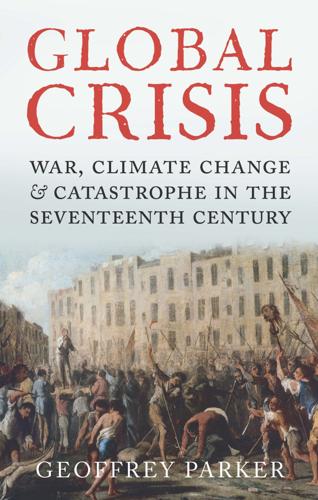
Global Crisis: War, Climate Change and Catastrophe in the Seventeenth Century
by
Geoffrey Parker
Published 29 Apr 2013
IN 1979 the World Meteorological Organization, the United Nations Environment Programme, the National Science Foundation, the Ford Foundation and the Rockefeller Foundation paid for 250 historians, geographers, archaeologists and climatologists from 30 countries to attend the first international ‘Conference on Climate and History’, hosted by the Climatic Research Unit at the University of East Anglia (England) – a unit sponsored by (among others) British Petroleum and Royal Dutch Shell. Cambridge University Press later published a volume containing the most innovative of the conference papers. That same year, the World Meteorological Organization created the ‘World Climate Program’ with a mandate to ‘insert climatic considerations into the formulation of rational policy alternatives’.
…
Thanks also to Derrin Culp, Kate Epstein, Daniel Headrick, James Lenaghan and Angela Nisbet, and to Greg Wagman and a group of gifted Honors Students at Notre Dame University for helpful references and suggestions. 2. I thank Christian Pfister and Martin Parry for sharing with me their recollections of the 1979 conference. Sanderson, The history, 285, notes BP and Shell sponsorship of the Climatic Research Unit, founded in 1971 as part of the University of East Anglia's School of Environmental Sciences. The Cambridge University Press volume was Wigley, Climate and history. 3. Report of the World Food Conference, Rome, 5–16 November 1974 (New York, 1975), 6–8 (at FAORLC-41001WorldFoodConference doc, accessed 9 Mar. 2012.
…
(i) Alps (i), (ii), (iii), (iv), (v), (vi) Alsace (i) Alte Veste (near Nuremberg) (i) Althusius, Johannes (i), (ii) Amakusa Shirō (i) Amboina (i) Ambuila (i) America (i), (ii), (iii), (iv), (v), (vi), (vii), (viii), (ix), (x), (xi), (xii), (xiii), (xiv), (xv), (xvi), (xvii), (xviii), (xix), (xx), (xxi), (xxii), (xxiii), (xxiv), (xxv), (xxvi), (xxvii), (xxviii), (xxix), (xxx), (xxxi), (xxxii), (xxxiii), (xxxiv), (xxxv), (xxxvi), (xxxvii), (xxxviii), (xxxix), (xl), (xli), (xlii), (xliii), (xliv), (xlv), (xlvi), (xlvii), (xlviii), (xlix), (l), (li), (lii), (liii), (liv), (lv), (lvi), (lvii), (lviii), (lix), (lx), (lxi), (lxii), (lxiii), (lxiv), (lxv), (lxvi), (lxvii), (lxviii), (lxix), (lxx), (lxxi), Plate 19, Fig. 42 Amsterdam (i), (ii), (iii), (iv), (v), (vi), (vii), (viii), (ix), (x), (xi), (xii), (xiii), (xiv), (xv), (xvi), (xvii), (xviii), Plate 26 Amur, river (i) Anatolia (i), (ii), (iii), (iv), (v), (vi), (vii), (viii), (ix), (x), (xi), (xii), (xiii), Fig. 21 Andalusia (i), (ii), (iii), (iv), (v), (vi), (vii), (viii), (ix), (x), (xi), (xii), (xiii), (xiv), (xv), (xvi), (xvii), Figs. 11, 28 Andreä, Johan Valentin (i) Andrea, Vincenzo d' (i), (ii), (iii) Andros, Sir Edmund (i) Andrusovo, Truce of (i), (ii), (iii), (iv), (v) n 83, Fig. 19 Angier, Elizabeth (i), (ii) Anglo-Dutch Wars (i), (ii), (iii), (iv) Angola (i), (ii), (iii), (iv), (v), (vi), (vii), (viii), (ix), Fig. 44 Anhui (i) Anne of Austria, queen regent of France (i), (ii), (iii), (iv) Annese, Gennaro (i), (ii), (iii), (iv), (v) Anti-war sentiment (i) Antigua (i) Antrim, Randall MacDonnell, marquis of (i), (ii), (iii), (iv), (v) Appalachians (i), (ii), (iii) Appleby, Andrew (i) Apprentices (i), (ii), (iii), (iv), (v), (vi), (vii), (viii), (ix), (x), (xi), (xii), (xiii) Aquitaine (i), (ii), (iii), (iv), (v) Arabia (i), (ii) Aragon (i), (ii), (iii), (iv), (v), (vi), (vii), (viii), (ix), (x), (xi), (xii), (xiii) Archie the Fool, see Armstrong, Archibald Arcos, Rodrigo Ponce de León, duke of (i), (ii), (iii), (iv), (v) Ardales (i) Arequipa (i) Argentina (i), (ii), (iii) Argyll, Archibald Campbell earl and marquis of (i), (ii), (iii), (iv), (v), (vi) Aristocracy (i), (ii), (iii), (iv), (v), (vi), (vii), (viii), (ix), (x), (xi), (xii), (xiii), (xiv), (xv), (xvi), (xvii), (xviii), (xix), (xx), (xxi), (xxii), (xxiii), (xxiv), (xxv), (xxvi), (xxvii), (xxviii), (xxix), (xxx), (xxxi), (xxxii), (xxxiii), (xxxiv), (xxxv), (xxxvi), (xxxvii), (xxxviii), (xxxix), (xl), (xli), (xlii), (xliii), (xliv), (xlv), (xlvi), (xlvii), (xlviii), (xlix), (l) n 43, (li) n 54, (lii) n 7 Arkansas, river (i) Armagh, County (i) Armies, see Soldiers Arminians (i), (ii) Arminius, Jacob (i) Armstrong, Archibald (‘Archie the Fool’), (i), (ii), (iii) Arnauld, Angélique (i), (ii), (iii), (iv), (v), (vi) Arnauld, Antoine (i) Arnauld d'Andilly, Robert (i), (ii) Arpaja, Francesco (i), (ii), (iii), (iv), (v) Arson, see Fires Asai Ryōi (i), (ii), (iii) Ashmole, Elias (i) Aston, John (i) Atlantic Ocean (i), (ii), (iii), (iv), (v), (vi), (vii), (viii), (ix), (x), (xi), (xii), Figs. 42 and 46 Aubrey, John (i), (ii) n 16 Augsburg (i), (ii), (iii) Aurangzeb, Mughal Emperor of India (i), (ii), (iii), (iv), (v), (vi), (vii), (viii), (ix), (x), (xi) Auria, Vincenzo (i), (ii), (iii) n 64 Australia (i), (ii), (iii), (iv) Austria (i), (ii), (iii), (iv), (v), (vi), (vii), (viii), (ix), (x), (xi), (xii), (xiii), (xiv), (xv), (xvi), (xvii), (xviii), (xix), (xx), 546, (i), (ii), (iii), (iv), (v) Austria, Don Juan of (i), (ii), (iii) Avraamii (i), (ii), (iii) Ayamonte, Francisco Manuel Silvestre de Guzmán y Zúñiga, marquis of (i), (ii), (iii) n 86 Azores (i), (ii) Azov (i), (ii), (iii) Bacharach, Naphtali ben Jacob (i) Bacon, Francis, Viscount St Albans (i), (ii), (iii), (iv), (v), (vi), (vii), (viii), (ix), (x), (xi) n 22 Bacon, Nathanael (i), (ii), (iii) Bahía (i), (ii), (iii) Baillie, Robert (i), (ii) Baily, Charles (i) Bainbridge, John (i) Balde, Jacob 602, Plate (i) Balfour, Sir James (i), (ii), (iii), (iv) Balkans (i), (ii), (iii), (iv), (v), (vi), (vii), (viii), (ix), (x), (xi), (xii), (xiii), (xiv), Fig. 21 Balkh (i) Le Balp, Sébastien (i) Balthasar Carlos, Crown Prince of Spain (i), (ii) Baltic (i), (ii), (iii), (iv), (v), (vi), (vii), (viii), (ix), (x), (xi), (xii) Bamberg (i) Banda Islands (i) Baptisms, see Births Barbados (i), (ii), (iii), (iv), (v), (vi), (vii), (viii), (ix), (x), (xi) Barbon, Nicholas (i) Barbot, Jean (i), (ii) Barcelona (i), (ii), (iii), (iv), (v), (vi), (vii), (viii), (ix), (x), (xi), (xii), (xiii), (xiv), (xv), (xvi), (xvii), (xviii), (xix), (xx), (xxi), (xxii), (xxiii), (xxiv), (xxv), Fig. 12 Barley, see Cereals Baronius, Francesco (i) Basel (i), (ii), (iii), (iv) Bashō Matsuo (i) Basing House (i) Bass, Thomas (i) Bassadonna, Pietro (i) Bastwick, John (i) Batavia (Jakarta) (i), (ii), (iii), (iv) n 2 Batencourt, Jacques de (i) Bavaria (i), (ii), (iii), (iv), (v), (vi), (vii), (viii), (ix), (x), (xi), (xii), (xiii) Baxter, Richard (i) Beauvaisis (i) Bedford, Francis Russell earl of (i), (ii), (iii), (iv), (v) Beer (i), (ii), (iii), (iv), (v), (vi), (vii) Beijing (i), (ii), (iii), (iv), (v), (vi), (vii), (viii), (ix), (x), (xi), (xii), (xiii), (xiv), (xv), (xvi), (xvii), (xviii), (xix), (xx), (xxi), (xxii), (xxiii), (xxiv), (xxv), (xxvi), (xxvii), (xxviii), (xxix), (xxx), (xxxi), (xxxii), (xxxiii), (xxxiv) Beik, William (i) Belarus (i), (ii) Belgorod (i), (ii), (iii) Belgorod Line (i), (ii), (iii), (iv), (v), (vi), (vii), Fig. 19 Belgrade (i) Belle-Île (i) Bellièvre, Pomponne de (i) Benedict, Philip (i) Bengal (i), (ii), (iii), (iv), (v) Bentley, William (i) Berenguer, Eufràsia (i) Bergen-op-Zoom (i) Berkeley, Sir William (i), (ii), (iii) Berkshire (i), (ii), Fig. 13 Bermuda (i), (ii) Bern (i), (ii) Bernier, François (i) Berry, Mary Elizabeth (i), (ii) Berwick, Pacification of (i), (ii) Biafra (i), (ii), (iii), (iv) Bianco, Francesco (i) Biaojia Qi (i) Bible (i), (ii), (iii), (iv), (v), (vi), (vii), (viii), (ix), (x), (xi), (xii), (xiii), (xiv), (xv), (xvi), (xvii) n 37 Bijapur (i) Bílá Hora, see White Mountain Bilbao (i) Birago Avogadro, Giovanni Battista (i), (ii), (iii), (iv) Births (i), (ii), (iii), (iv), (v), (vi), (vii), (viii), (ix), (x), (xi), (xii), (xiii), (xiv), (xv), (xvi), (xvii), (xviii), (xix), (xx), (xxi), (xxii), (xxiii), (xxiv), (xxv), Figs. 14, 15, 27, 29, 40, see also Abortion, Contraception, Foundlings, Illegitimacy, Infanticide Bisaccione, Majolino (i), (ii), (iii), (iv) Biscay, see Vizcaya Bitola (i) Black Sea (i), (ii), (iii), (iv), (v) Bloch, Marc (i) Bohemia (i), (ii), (iii), (iv), (v), (vi), (vii), (viii), (ix), (x), (xi), (xii), (xiii), (xiv), (xv), (xvi), (xvii), (xviii), (xix), (xx), (xxi), (xxii) n 37, Plate 13 Bohorques Girón, Pedro (i), (ii), (iii), (iv) Boix y Moliner, Miguel Marcelino (i) Bolitho, Harold (i) Bonde, Gustav (i) Bondi, Hermann (i) Bone (i) Book of Common Prayer (i), (ii), (iii) Bordeaux (i), (ii), (iii), (iv), (v), (vi), (vii), (viii), (ix), (x), (xi) Borneo (i), see also Indonesia Bosporus (i), (ii), (iii), (iv), (v), (vi) Bossuet, Jean-Bénigne (i), (ii) n 43, (iii) n 76 Boston (Lincolnshire) (i) Boston (Massachusetts) (i), (ii), (iii), (iv), (v), (vi), (vii), (viii), (ix), (x) Botero, Giovanni (i) Bouillon, Frédéric-Maurice de La Tour d'Auvergne, duke of (i) Boyle, Robert (i), (ii), (iii), (iv), (v), (vi), (vii) Brabant (i), (ii) Bradstreet, Anne (i) Bragança, Duke John of, see John IV, king of Portugal Brandenburg (i), (ii), (iii), (iv), (v), (vi), (vii), (viii) Brattle, Thomas (i) Braudel, Fernand (i) Bray, Francesca (i) Brazil (i), (ii), (iii), (iv), (v), (vi), (vii), (viii), (ix), (x), (xi), (xii), (xiii), (xiv), (xv), (xvi), (xvii), (xviii), (xix), (xx), (xxi), (xxii), (xxiii), (xxiv), (xxv) Bread, see Cereals Brecke, Peter (i), Breda (i), (ii), (iii), (iv), (v), (vi) Breda, Declaration of (i) Breisach (i), (ii), (iii) Breitenfeld, battle of (i) Bremen (i) Briffa, Keith (i) Brinton, Crane (i), (ii) Britain, see Great Britain Brittany (i), (ii), (iii), (iv), (v), (vi) Brokaw, Cynthia (i), (ii) Brook, Timothy (i), (ii), (iii), (iv), (v) Broussel, Pierre (i), (ii), (iii) n 49 Brown, Edward (i) Brunswick-Wolfenbüttel, Duke Augustus of (i), (ii) Brussels (i), (ii), (iii), (iv), (v), (vi), (vii), (viii), (ix) Buckingham, George Villiers duke of (i), (ii), (iii), (iv), (v), (vi), (vii), (viii), (ix), (x), (xi), (xii), (xiii) n 66 Buddhists (i), (ii), (iii), (iv), (v), (vi), (vii), (viii), (ix), (x), (xi) n 65, (xii) nn 12–13 Buenos Aires (i) Bunyan, John (i), (ii) Burgos (i) Burgundy (i), (ii), (iii), (iv), (v), (vi) Burke, Edmund (i) Burma (i), (ii) Burton, Henry (i) Burton, Robert (i), (ii), (iii) Burton-on-Trent (i) Butler, Samuel (i), (ii) n 61 Butts, Henry (i) Bygdeå (i), (ii) Byron, George Gordon, Lord (i) Cade, Jack (i), Cádiz (i), (ii), (iii), (iv), (v), (vi), (vii), (viii), (ix), (x), (xi), (xii) Caen (i), (ii) Cahiers de doléances (i), (ii) Cairo (i), (ii), (iii), (iv), (v), (vi), (vii) Calabria (i), (ii) Calculus (i), (ii) n 48 Caldera de Heredía, Gaspar (i) Calderón de la Barca, Pedro (i), (ii) n 6 Calderwood, David (i) Callao (i) Callot, Jacques (i), (ii) Caltabellotta (i), (ii) Calvin, John (i), (ii) Calw (i) Cambodia (i) Cambridge (Massachusetts) (i) Cambridge University (England) (i), (ii), (iii), (iv), (v), (vi), (vii), (viii), (ix), (x), (xi), (xii) Cambridgeshire (i) Cambrils (i), (ii), (iii) Cameroon Highlands (i) Campbell, Bruce (i), (ii) Canada (i), (ii), (iii), (iv), (v) Cane, Scott (i) Cannibalism (i), (ii), (iii), (iv), (v) n 34 Canton (Guangzhou) (i), (ii), (iii), (iv), (v), (vi), (vii) Capaccio, Giulio Cesare (i) Cape of Good Hope (i) Cape Horn (i) Carafa, Don Giuseppe Plate (i) Carlisle, Lucy countess of (i) Carlos II, king of Spain (Carlos I of Portugal) (i), (ii), (iii), (iv) Carlowitz (i) Carlton, Charles (i) Carolus, Johan (i) Cartagena (i) Carter, Ann (i) Cary, Mary (i) Casale (i), (ii) Caspian Sea (i), (ii), (iii), (iv) Cassini, Giandomenico (i), (ii) n 73 Castile (i), (ii), (iii), (iv), (v), (vi), (vii), (viii), (ix), (x), (xi), (xii), (xiii), (xiv), (xv), (xvi), (xvii), (xviii), (xix), (xx), (xxi), (xxii), (xxiii), (xxiv), (xxv), (xxvi), (xxvii), (xxviii), (xxix), (xxx), (xxxi), (xxxii), Fig. 29 Castronuovo (i) Catalonia (i), (ii), (iii), (iv), (v), (vi), (vii), (viii), (ix), (x), (xi), (xii), (xiii), (xiv), (xv), (xvi), (xvii), (xviii), (xix), (xx), (xxi), (xxii), (xxiii), (xxiv), (xxv), (xxvi), (xxvii), (xxviii), (xxix), (xxx), (xxxi), (xxxii), (xxxiii), (xxxiv), (xxxv), (xxxvi), (xxxvii), (xxxviii), (xxxix), (xl), (xli), (xlii), (xliii), (xliv), (xlv), (xlvi), (xlvii), (xlviii), (xlix) n 24, Figs 12, 26 Catania (i) Catholics, Roman (i), (ii), (iii), (iv), (v), (vi), (vii), (viii), (ix), (x), (xi), (xii), (xiii), (xiv), (xv), (xvi), (xvii), (xviii), (xix) Caucasus (i), (ii) n 18 Cavendish, William, see Newcastle, marquis of Cefalù (i) Çelebi, Evliyā (i), (ii), (iii), (iv) Çelebi, Kâtib (i), (ii), (iii), (iv), (v), (vi), (vii), (viii) Censorship (i), (ii), (iii), (iv), (v), (vi), (vii), (viii) n 36 Cereals (i), (ii), (iii), (iv), (v), (vi), (vii), (viii), (ix), (x), (xi), (xii), (xiii), (xiv), (xv), (xvi), (xvii), (xviii), (xix), (xx), (xxi), (xxii), (xxiii), (xxiv), (xxv), (xxvi), (xxvii), (xxviii), (xxix), (xxx), (xxxi), (xxxii), (xxxiii), (xxxiv), (xxxv), (xxxvi), (xxxvii), (xxxviii), (xxxix), (xl), (xli), (xlii), (xliii), (xliv), (xlv), (xlvi), (xlvii), (xlviii), (xlix), (l), (li), (lii), (liii), (liv), (lv), (lvi), (lvii), (lviii), (lix), (lx), (lxi) Cervantes Saavedra, Miguel de (i), (ii) Ceuta (i), (ii) Ceylon (Sri Lanka) (i), (ii), (iii), (iv) Chad, Lake (i), (ii), Fig. 45 Chambonneau, Louis Moheau de (i) Champaigne, Philippe de (i) Champlain, Samuel de (i) Channel Isles (i) Chardin, Jean (i), (ii) Charity (i), (ii), (iii), (iv), (v), (vi), (vii), (viii), (ix), (x), (xi), (xii), (xiii), (xiv), (xv), (xvi), (xvii), (xviii) Charles I, king of Great Britain (i), (ii), (iii), (iv), (v), (vi), (vii), (viii), (ix), (x), (xi), (xii), (xiii), (xiv), (xv), (xvi), (xvii), (xviii), (xix), (xx), (xxi), (xxii), (xxiii), (xxiv), (xxv), (xxvi), (xxvii), (xxviii), (xxix), (xxx), (xxxi), (xxxii), (xxxiii), (xxxiv), (xxxv), (xxxvi), (xxxvii), (xxxviii), (xxxix), (xl), (xli), (xlii), (xliii), (xliv), (xlv), (xlvi), (xlvii) n 66, (xlviii) n 39, (xlix) nn 8–9, Plate 3 Charles II, king of Great Britain (i), (ii), (iii), (iv), (v), (vi), (vii), (viii), (ix), (x), (xi), (xii), (xiii), (xiv), (xv), (xvi), (xvii), (xviii), (xix), (xx), (xxi) Charles V, Holy Roman Emperor (i), (ii), (iii), (iv), (v), (vi) Charles IX, king of Sweden, (i) Charles X Gustav, king of Sweden (i), (ii), (iii), (iv), (v), (vi) Charles XII, king of Sweden (i), (ii) Charles, king of Spain, see Carlos II Châtelet, Gabrielle Émilie Le Tonnelier de Breteuil, marquise du (i) Chen Bangyan (i) Chen Zhilong (i), (ii) Chesapeake Bay (i), (ii), (iii), (iv), (v), (vi), (vii) n 30, (viii) n 35 Cheshire (i) Chikamatsu Monzaemon (i) Children (i), (ii), (iii), (iv), (v), (vi), (vii), (viii), (ix), (x), (xi), (xii), (xiii), (xiv), (xv), (xvi), (xvii), (xviii), (xix), (xx), (xxi), (xxii), (xxiii), (xxiv), (xxv), (xxvi), (xxvii), (xxviii), (xxix), (xxx), (xxxi), (xxxii), (xxxiii), (xxxiv), (xxxv), (xxxvi), (xxxvii), (xxxviii), (xxxix), (xl), (xli), (xlii), (xliii), (xliv), (xlv), (xlvi), (xlvii), (xlviii), (xlix), (l), (li), (lii), (liii), (liv), (lv), (lvi), (lvii), (lviii), (lix), (lx), (lxi) n 77, (lxii) n 80, Plate 17, Fig. 15 Chile (i), (ii), (iii), (iv), (v), (vi), (vii) China (i), (ii), (iii), (iv), (v), (vi), (vii), (viii), (ix), (x), (xi), (xii), (xiii), (xiv), (xv), (xvi), (xvii), (xviii), (xix), (xx), (xxi), (xxii), (xxiii), (xxiv), (xxv), (xxvi), (xxvii), (xxviii), (xxix), (xxx), (xxxi), (xxxii), (xxxiii), (xxxiv), (xxxv), (xxxvi), (xxxvii), (xxxviii), (xxxix), (xl), (xli), (xlii), (xliii), (xliv), (xlv), (xlvi), (xlvii), (xlviii), (xlix), (l), (li), (lii), (liii), (liv), (lv), (lvi), (lvii), (lviii), (lix), (lx), (lxi), (lxii), (lxiii), (lxiv), (lxv), (lxvi), (lxvii), (lxviii), (lxix), (lxx), (lxxi), (lxxii), (lxxiii), (lxxiv), (lxxv), (lxxvi), (lxxvii), (lxxviii), (lxxix), (lxxx), (lxxxi), (lxxxii), (lxxxiii), Plates 5, 7, 8, 17, 24, Figs 8, 16, 17 Chinggis Khan (i) Chishima Current (i) Chistyi, Nazarii (i), (ii) Chocolate (i) Chongzhen, emperor of China (i), (ii), (iii), (iv), (v), (vi), (vii), (viii), (ix) Christchurch (New Zealand) (i) Christian IV, king of Denmark (i), (ii), (iii), (iv), (v), (vi), (vii), (viii), (ix) Christianity, see Catholics, Orthodox, Protestants Christina, queen of Sweden (i), (ii), (iii), (iv), (v), (vi), (vii), (viii), (ix), (x), (xi), (xii), (xiii), (xiv), (xv), (xvi) Chumacero, Don Juan (i), (ii), (iii) n 61 Churchill, Sir Winston (i) Ciampoli, Giovanni (i), (ii) n 38 Cinci Hoja (i) Cinq-Mars, Henri Coiffier de Ruzé, Marquis de (i) Cities (i), (ii), (iii), (iv), (v), (vi), (vii), (viii), (ix), (x), (xi), (xii), (xiii), (xiv), (xv), (xvi), (xvii), (xviii), (xix), (xx), (xxi), (xxii), (xxiii), (xxiv), (xxv), (xxvi), (xxvii), (xxviii), (xxix), (xxx), (xxxi), (xxxii), (xxxiii), (xxxiv), (xxxv), (xxxvi), (xxxvii), (xxxviii), (xxxix), (xl), (xli), (xlii), (xliii), (xliv), (xlv), (xlvi), see also Fires Clarendon, earl of, see Hyde, Edward Claris, Pau (i), (ii), (iii), (iv), (v), (vi) Clarke, Aidan (i) Classical learning (in China) (i), (ii), (iii), (iv), (v), (vi) Classical learning (in Europe) (i), (ii), (iii), (iv), (v), (vi), (vii), (viii), (ix), (x), Fig. 27 Claustration, see Convents Clergy (i), (ii), (iii), (iv), (v), (vi), (vii), (viii), (ix), (x), (xi), (xii), (xiii), (xiv), (xv), (xvi), (xvii), (xviii), (xix), (xx), (xxi), (xxii), (xxiii), (xxiv), (xxv), (xxvi), (xxvii), (xxviii), (xxix), (xxx), (xxxi), (xxxii), (xxxiii), (xxxiv), (xxxv), (xxxvi), (xxxvii), (xxxviii), (xxxix), (xl), (xli), (xlii), (xliii), (xliv), (xlv), (xlvi), (xlvii), (xlviii), (xlix), (l), (li), (lii), (liii), (liv), (lv), (lvi), (lvii), (lviii), (lix), (lx), (lxi), (lxii), (lxiii) Climate, see Little Ice Age Climatic Research Unit, University of East Anglia (i) Coal (i), (ii), (iii), (iv), (v), (vi), (vii), (viii), (ix), (x), (xi), (xii) n 46 Cochrane, John (i) Cocks, Richard (i) Coffee (i), (ii), (iii), (iv), (v), (vi), (vii), (viii), (ix), (x), (xi) Coimbra (i), (ii) Colbert, Jean-Baptiste (i), (ii), (iii) Colchester (i), (ii), (iii) Coldstream Guards (i) Coleraine (i) Cologne (i) Colombo (i), (ii) Comenius, Jan Amos (i) Comets (i), (ii), (iii), (iv), (v), (vi), (vii), (viii), (ix), (x), (xi) n 73 ‘Commonwealth’ (British, English) (i), (ii) Composite states (i), (ii), (iii), (iv), (v), (vi), (vii), (viii), (ix), (x), (xi), (xii) n 46 Le Comte, Louis (i), (ii), (iii), (iv) Concepción de Chile (i) Condé, Louis de Bourbon, prince of (i), (ii), (iii), (iv), (v), (vi), (vii), (viii), (ix), (x), (xi), (xii) n 94 Confessors, royal (i), (ii), (iii), (iv) n 34, (v) n 7 Confucius, Confucianism (i), (ii), (iii), (iv), (v), (vi), (vii), (viii), (ix), (x), (xi), (xii), (xiii) n 46 Congress of Westphalia, see Westphalia Connecticut (i), (ii), (iii), (iv) Connolly, Owen (i), (ii) n 74 Constantine the Great (i), (ii) Contingency (i), (ii), (iii), (iv), (v), (vi), (vii), (viii), (ix), (x), (xi), (xii), (xiii), (xiv), (xv), (xvi) Contraception (i), (ii), (iii), (iv) n 49, see also Abortion, Births, Foundlings, Infanticide Convents (i), (ii), (iii), (iv), (v), (vi), (vii), (viii), (ix), (x) n 60, (xi) n 62, (xii) nn 12–13 Cook, Harold J.
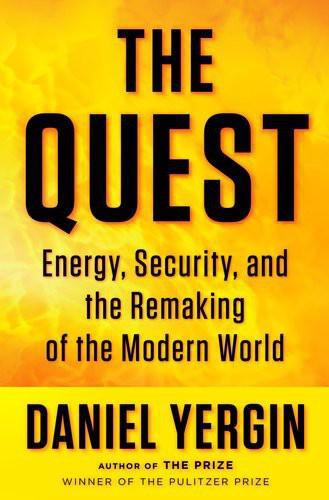
The Quest: Energy, Security, and the Remaking of the Modern World
by
Daniel Yergin
Published 14 May 2011
After the Republicans won the House of Representatives in 2010, a climate legislation became even less likely. “THE HEALTH OF THE HIMALYAS” More or less concurrent with Copenhagen was a chipping away of the credibility of the IPCC itself. In what became known as climategate, somebody hacked into the e-mails of the Climatic Research Unit at the University of East Anglia in England, which was one of the main research centers supporting climate research and the work of the IPCC. To many climate scientists and activists, the e-mails were being taken out of context and grossly misconstrued. But the way others read the e-mails was that some prominent scientists had turned to “tricks” to come out with the results they had wanted and went out of their way to denigrate and isolate those who might disagree.
…
(Einstein) dollar, U.S., demand shock and Doriot, Georges Dow Chemical Drake, Edwin Draper, William, III Dreamliner drop-ins (fungible molecules; green molecules) drought Dubai Dudek, Daniel Dukakis, Michael Dunham, Archie DuPont chemical company Dutch disease dynamic pricing E10 gasoline E85 fuel “Early Oil,” Earth Day (1970) Earth Day (1990) earthquakes, in Japan Earth Summit (United Nations Conference on Environment and Development) East Anglia, University of, Climatic Research Unit at Eastern Europe fall of communism in East Ohio Gas Company East Siberia-Pacific Ocean Pipeline East Texas oil field Eberhard, Martin economies of scale electricity and Economist economy, world , air-conditioning and Asian financial crisis and China in climate change and demand shock and East Asia in effects of Fukushima accident on electric car and electricity and energy security and global trade and hinges of India in Libya and natural gas and oil and Qatar in renewables and resource adequacy and Russia and sovereign wealth funds in Soviet Union and economy and economic growth of Asian tigers Caspian Derby and climate change and electricity and of emerging markets energy security and integration of oil and of petro-states see also specific countries Edison, Thomas Edison General Electric Edison Illuminating Companies education EEVs (emissions elsewhere vehicles) efficiency, energy in buildings of China by design of France fuel of industry mottainai and of natural gas of natural monopoly technology and Top Runner program and U.S.
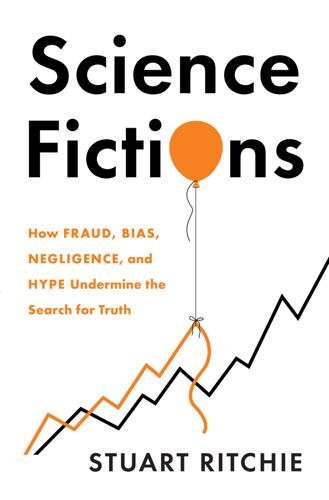
Science Fictions: How Fraud, Bias, Negligence, and Hype Undermine the Search for Truth
by
Stuart Ritchie
Published 20 Jul 2020
The science historian Alex Csiszar discusses the case of climate change, where skeptics have invoked a fairy-tale image of scientific publishing as the bedrock of legitimate consensus only to profess outrage when it turns out not to live up to this fantasy. This reaction was exemplified by the reaction to the leak of thousands of emails and documents from the Climate Research Unit at the University of East Anglia in November 2009. The emails seemed to reveal climate scientists engaging in secretive behavior and politicking with peer review. Evidence that scientific life behind the printed pages of journals was not a precise reflection of its better-behaved public face was seized upon by commentators to argue that the bottom had fallen out.18 Climate science, as it happens, is an apt example.